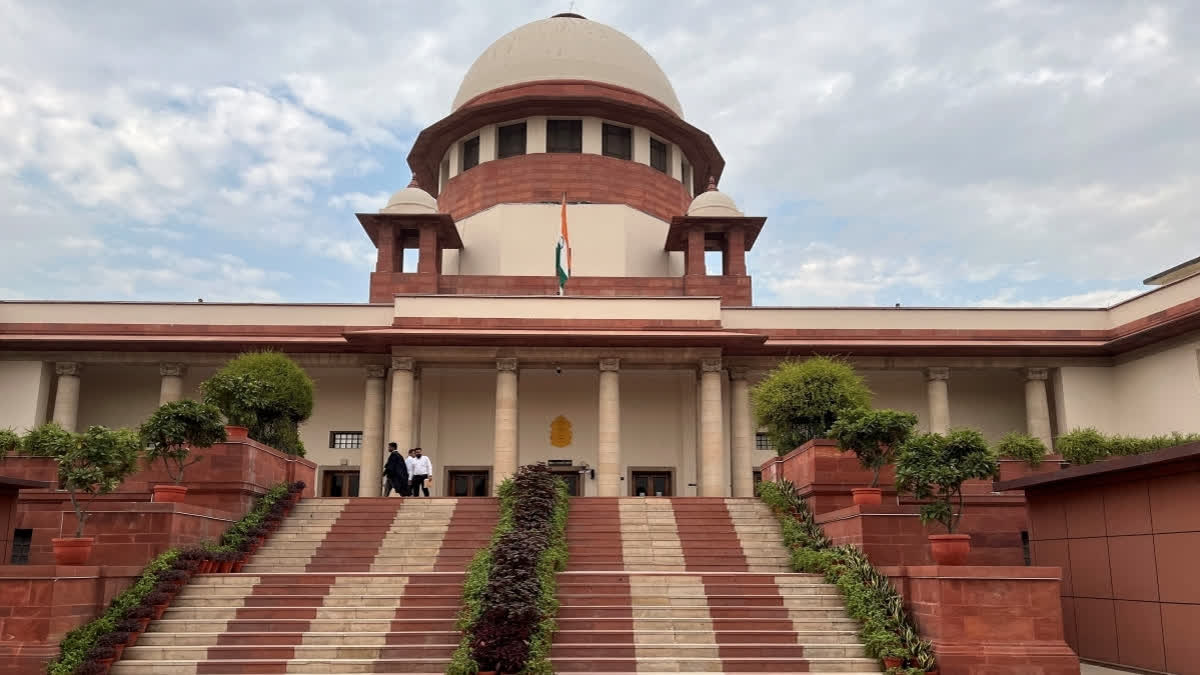New Delhi: The Supreme Court Friday said the Kerala governor’s secretary should look at the order passed by the court on a plea by Punjab government against Punjab governor’s inaction on bills passed by the state assembly. Kerala government moved the apex court claiming inaction on the part of the governor in relation to as many as 8 bills passed by the state legislature and presented to the governor for his assent under Article 200 of the Constitution.
Senior advocate K K Venugopal, representing Kerala government, contended before a three-judge bench led by Chief Justice of India D Y Chandrachud that court’s judgment in Punjab matter will cover his duty and added that several were bills sent for governor Arif Mohammed Khan’s assent but they have been pending for last two years.
The CJI told the Attorney General R Venkataramani, “since our order in Punjab matter was uploaded last night, ask the governor’s secretary to look at the order and tell us what is your response on Tuesday. The AG said we will talk to the governor. Venugopal said, “all the ministers have met him, the chief minister has met him (governor) many number of times…”, and submitted that 8 bills are pending before him. After a brief hearing in the matter, the apex court scheduled the matter for further hearing on Tuesday.
On November 20, the Supreme Court issued notice on a plea by Kerala government claiming that the state's governor is delaying the consideration of bills passed by the legislative assembly.
In the previous hearing, Venugopal had said the governors do not realise that they're part of the legislature and in this case, he has signed 3 ordinances. Venugopal said the governor promulgates ordinances and when it is made a bill then for two years, he sits on it. Venugopal also pointed out that the court had asked the Attorney General and Solicitor General to assist it in the matter and the documents have been served on them. The apex court asked either the Attorney General or Solicitor General to assist the court in the matter.
The state government said 3 bills have remained pending with the governor for more than 2 years, and 3 more in excess of a full year. “The conduct of the Governor, as would presently be demonstrated, threatens to defeat and subvert the very fundamentals and basic foundations of our Constitution, including the rule of law and democratic good governance, apart from defeating the rights of the people of the State to the welfare measures sought to be implemented through the Bills”, said the state’s plea.
The plea said Article 200 of the Constitution casts a solemn duty on the governor of a state by requiring that on the presentation to him of any Bill passed by the state legislature, he “shall declare either that he assents to the Bill or that he withholds assent therefrom or that he reserves the Bill for the consideration of the President”.
In the Punjab order, the apex court said that the governor holds no veto power over Billa and cannot be at liberty to keep the Bill pending indefinitely without any action whatsoever. The apex court stressed that the governor, as an unelected head of the state, is entrusted with certain constitutional powers and this power cannot be used to thwart the normal course of lawmaking by the state legislatures.
The Punjab government had moved the Supreme Court alleging delay by governor in giving assent to bills passed by the state assembly. The plea said such "unconstitutional inaction" has brought the entire administration to a "grinding halt." The Punjab governor is involved in a long-running feud with the Aam Aadmi Party government led by chief minister Bhagwant Mann.



